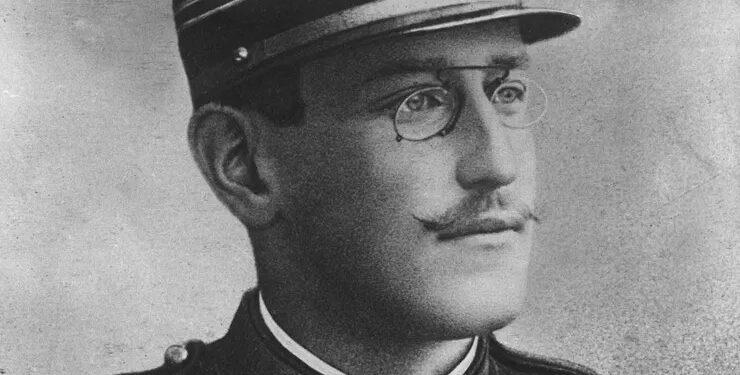Alfred Dreyfus (1859-1935) was a French artillery officer whose wrongful conviction for treason in 1894 sparked a major political crisis known as the “Dreyfus Affair,” which deeply divided French society and exposed deep-rooted antisemitism in France’s military and society.
Dreyfus, born to a Jewish family in Alsace, was an accomplished military officer who had risen through the ranks to become a captain in the French Army. In 1894, he was accused of selling military secrets to Germany after a cleaning woman working for French intelligence discovered a torn-up letter (known as the “bordereau”) in the German Embassy’s waste paper basket. Despite flimsy evidence and his consistent proclamations of innocence, Dreyfus was convicted of treason in a secret court-martial.
In a public ceremony that came to symbolize the affair, Dreyfus was stripped of his rank in a humiliating degradation ceremony in January 1895. The officers broke his sword while crowds shouted antisemitic slogans. He was sentenced to life imprisonment on Devil’s Island, a penal colony off the coast of French Guiana, where he endured harsh conditions in isolation.
The case began to unravel when Lieutenant Colonel Georges Picquart, the new head of military intelligence, discovered evidence in 1896 that the real traitor was Major Ferdinand Walsin Esterhazy. However, rather than admitting their mistake, the military hierarchy transferred Picquart to Africa and covered up the evidence. This sparked a growing movement of supporters who believed in Dreyfus’s innocence.
The affair reached its climax when writer Émile Zola published his famous open letter “J’Accuse…!” in 1898, which accused the army of orchestrating a cover-up. The letter divided French society between “Dreyfusards” (supporters of Dreyfus) and “anti-Dreyfusards,” reflecting deeper divisions between progressives and conservatives, republicans and monarchists, and secular and Catholic French citizens.
After years of public controversy, Dreyfus was finally granted a new trial in 1899. Although he was initially found guilty again, he was pardoned by the president and later fully exonerated in 1906. He was reinstated in the army with the rank of major and served during World War I, retiring as a lieutenant colonel.
The Dreyfus Affair became a defining moment in French history, highlighting the importance of truth, justice, and human rights over institutional power. It strengthened French republican values and contributed to the 1905 law separating church and state. The case remains a powerful symbol of the fight against antisemitism and the importance of standing up for justice in the face of institutional prejudice.
newshub



Recent Comments